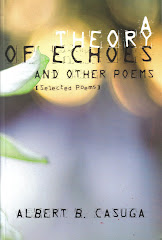ASIAN BOOKER WINNER SYJUCO OVERLOOKED
In what looked like a snub of Canadian Man Booker Prize winners --- the prestigious U.K.-based Booker prize (Emma Donoghue, this year's finalist with her novel Room) and the Asian Booker winner (Philippine-born writer Montrealer Miguel Syjuco, Ilustrado, 2009) --- Canada's $50,000 Scotiabank Giller excluded the rave reviewed entries from its longlist.
Giller appears to be proving consistent to its penchant of overlooking Man Booker Prize winners. In 2002, Yann Martel's Life of Pi was ignored. Martel did not make this year's list either with his best selling Beatrice and Virgil.
Message? Don't win the Man Booker before you get considered for the Scotia Giller. Or it could be its way of saying, if you've won one prize, let's get others some ducats, too. You know, starving artist's amelioration. Who says the best work of art necessarily wins? Good social conscience, bad art appreciation.
Donoghue, Syjuco, and Martel have received impressive reviews from Canadian, American, and European book critics and literary periodicals as introducing ground-breaking narrative techniques. (This is an understatement!).
In Canada. The Globe and Mail wrote about Ilustrado: "It would be a shock were Ilustrado not nominated for top literary prizes in Canada and around the world." In the U.S., The Washington Post called it "wildly entertaining...absolutely assured in its tone, literary sophistication and satirical humour. U.K.'s Guardian described it "a dazzling and virtuosic adventure reading. . . its author ...may succeed with the Nobel committee." But there are book critics and then there are book critics.
One down. There's Roger's Writer's Trust and the Governor General's Award to come. There are prizes and then there are prizes. Except for the money, do they really mean anything to the author as artist?
(As promised earlier, I will write subsequent reviews of all three Canadian Man Booker winners and perhaps highlight the Giller faux pas.)
Toronto Star's publishing reporter Vit Wagner filed a story on the fate of the Man Bookers. Oh, and the others.
(Please click on the image to zoom in on the text.)












No comments:
Post a Comment